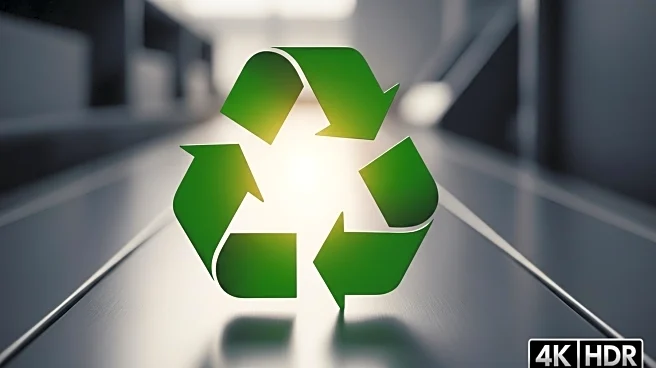What's Happening?
The concept of Extended Producer Responsibility (EPR) is gaining traction in the United States as a potential solution to the growing problem of waste from vehicles and home appliances. EPR policies require manufacturers to manage the entire lifecycle of their products, including disposal and recycling. This approach is already in practice in Europe and Asia, where companies like BMW and Japanese appliance makers have implemented systems to ensure high recycling rates. In the U.S., however, manufacturers are not currently held accountable for the disposal of their products, leading to significant waste. The article highlights the need for federal action to implement EPR policies, which could lead to more sustainable product designs and reduced landfill waste.
Why It's Important?
Implementing EPR policies in the U.S. could have significant environmental and economic benefits. By holding manufacturers accountable for the disposal of their products, there is an incentive to design items that are easier to recycle, reducing the use of toxic materials and promoting sustainability. This shift could also drive innovation and create jobs in recycling and remanufacturing industries. Moreover, as U.S. companies already comply with EPR laws in other countries, adopting similar policies domestically could enhance their competitiveness and align with global sustainability trends. The move could also reduce the environmental impact of waste, contributing to a circular economy.
What's Next?
The push for EPR policies in the U.S. is gaining momentum, with states like Maine and Oregon already passing laws for packaging, and New York implementing electronics EPR laws. However, broader federal action is needed to cover vehicles and major appliances. This would require manufacturers to develop take-back programs and compete on recycling efficiency. Consumer advocacy and legislative support are crucial in driving this change. As awareness grows, consumers are encouraged to demand take-back programs and support EPR legislation, potentially leading to a nationwide adoption of these policies.
Beyond the Headlines
The adoption of EPR policies could lead to a cultural shift in how products are designed and consumed in the U.S. By prioritizing recyclability and sustainability, manufacturers may focus on creating longer-lasting products with fewer environmental impacts. This could also influence consumer behavior, encouraging more responsible purchasing decisions and increasing demand for sustainable products. Additionally, the move towards a circular economy could position the U.S. as a leader in sustainable innovation, with potential global implications for environmental policy and economic practices.










